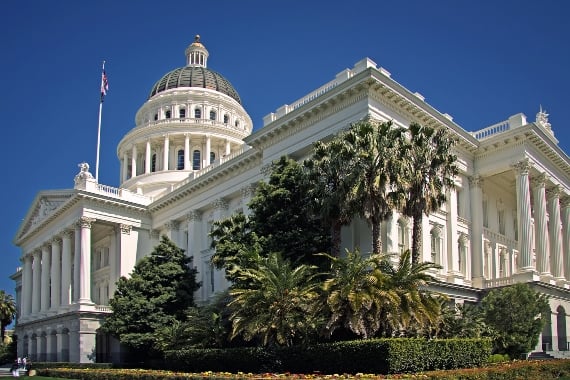Measure would create public pension for private workers; industry groups cite potential underfunded liabilities
Industry groups are fighting a proposal pending in the California State Assembly that would set up a state-authorized pension plan for private employees.
In the latest development, the Financial Services Institute Inc. on Monday issued a call to action to members in California asking them to oppose the bill.
The legislation "would force employers with five or more employees to automatically enroll [in the state plan] if they don't provide a workplace savings plan," FSI spokesman Christopher Paulitz said.
"It would disrupt a competitive and healthy market of retirement plan providers that are already serving employers of all sizes," he said.
Last month, the California Senate approved the bill (SB1234), known as the California Secure Choice Retirement Savings Act. The Assembly's Committee on Labor and Employment is now amending the bill.
The bill's supporters said private-sector employers face significant costs and liability in sponsoring private plans.
The "administrative headaches are ridiculous," said Greg Hayes, communications director for state Senator Kevin de León, a Los Angeles Democrat and chief sponsor of the legislation.
Sponsoring a retirement plan is "too much of a challenge in this economy" for small employers, he said. "As a result, we have seven million people in California without a plan" available through work.
Employers participating in the state-authorized plan, which would be administered by a seven-member board headed by the state treasurer, would not bear any fiduciary responsibility and would not be required to pay administrative costs, according to a fact sheet produced by Mr. de León's office.
Under the bill passed by the Senate, employees would defer 3% of their salary into the plan unless they opted out. Employers could make matching contributions.
The plan would guarantee a minimum return tied to the 30-year Treasury bond rate.
Private firms would manage the portfolio and secure underwriting through private insurers to guarantee the minimum return. The California Public Employees' Retirement System would be eligible to bid on the contract, according to Mr. de León's summary.
Last month, the FSI joined with the Securities Industry and Financial Markets Association, the Investment Company Institute, the Financial Planning Association and a number of other trade groups in urging state senators to defeat the bill.
The industry associations cited warnings from the California Finance Department about the potential cost.
Costs for the insurance, and for premiums that would have to be paid to the Pension Benefit Guarantee Corp., could exceed the maximum 1% administrative costs allowed in the plan, the Finance Department said in an analysis last month.
Ultimately, the state could be "at serious risk of billions of dollars in unfunded liabilities if investment performance falters," the department said.
Mr. Hayes disputed the Department of Finance's analysis.
Earlier but similar bills introduced in the California legislature have gone nowhere.
Those plans "were going to be run by the state," Mr. Hayes said. "The big difference here is that it's state mandated, but run by the private sector. We believe we've been able to address a lot of concerns about potential taxpayer liabilities."
Mr. Hayes added that the legislation would not directly set up a state-mandated plan, but simply authorize a feasibility study.
"We don't know if what we're proposing is feasible, but we can't afford not to try," he said.







